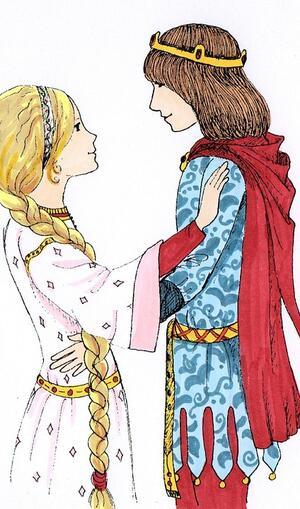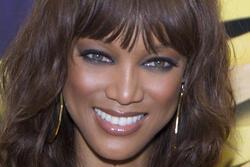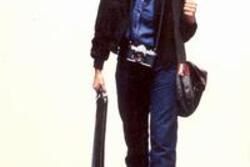The Princess Tried
The Princess Bride is my favorite movie. It’s been my favorite movie for as long as I can remember, and I like to rewatch it every couple of years. The Princess Bride is a story about true love between Buttercup (a country girl) and her servant Westley in medieval(ish) times. Westley is thought to be dead and Buttercup is kidnapped into a political plot full of sword fights and giants. Westley reappears on the scene and along with some excellent side characters ends up rescuing Buttercup and saving the day. Sounds amazing right? But when I watched it last year I was in for an unpleasant realization. My favorite movie, though strikingly Jewish, is not particularly feminist. It’s not just that it doesn’t pass the Bechdel test (because let’s be real how many movies do?), it’s because the female protagonist, Buttercup, is seemingly incapable of doing anything on her own. The movie is a classic fairy tale full of sword fights, castles, and damsels in distress. However with such rich male characters one would hope that Buttercup would be a little more…multi-dimensional.
A closer look at Buttercup and the way she evolves throughout the movie reveals something disappointing. At the beginning of the film she is commanding, prideful, and comes off as rather spoiled. She orders Westley around mercilessly, and with no gratitude, until they fall in love. Then she thinks he’s dead and she is miserable. However, in his absence, she stands up for herself. She is bold when she is captured and tries to escape. When Vizzini (Buttercup’s captor) says to her “I suppose you think you’re brave,” she stares him down and responds, “only compared to some.” She remains cool and collected all throughout her captivity, and when Westley returns and insults her she stands up for herself: “You mocked me once never do it again!” Then she shoves him down a mountain. Up until this point in the movie I was very pleased, as a feminist, with the way things were going. And then… it happens. Buttercup realizes Westley is alive and from this point forward Buttercup’s entire existence revolves around him.
Although she was perfectly capable of handling danger just moments before, Westley saves her from all the dangers of the treacherous fire swamp. He even carries her around. She doesn’t defend herself against the giant rodent, because Westley is there. The minute Westley appears on the scene, Buttercup acts helpless, although she clearly isn’t. She spends the rest of the movie moping around and waiting for him to come save her. She is clearly capable of rescuing herself but chooses not to because, as she says, “My Westley will save me.” I find it very frustrating that this movie feels the need to take away Buttercup’s personality and ability and replace it with “feminine” weakness the moment the male protagonist returns to the scene.
While feminist Rana is less than happy with this movie, Jewish Rana could not be more thrilled. The movie is brimming with Jewish humor and Jewish actors. The author, director, and screenwriter are all Jewish, and it shows. Mandy Patinkin, who played Inigo Montoya (famous for the line “My name is Inigo Montoya, you killed my father, prepare to die), is actually a famous Yiddish singer. The Jewishness in this movie is not just behind the scenes though. Miracle Max and his wife Valerie (an elderly couple who live in the forest) are most certainly Jewish and sound like a lot of Jewish grandparents I know. The scene with the two of them is filled with talk of loose change, prioritizing sandwiches over love, and other Jewish stereotypes. They fight and yell and argue with their whole hearts and then act as if nothing happened in the most Jewish way possible. Judaism has a long history of strong argumentative women who know how to stand up for themselves; and Valerie clearly exemplifies this. Perhaps Buttercup should have been endowed with more of these strong traits.
I have always loved fairy tales. I love princesses, swords, action, the whole deal. As a little girl I looked up to Buttercup a lot. But now I’m not sure how great of a role model she is. On one hand she is a step up from the helpless princesses of the past. She challenges authority and is brave some of the time. But the lessons implied in the Princess Bride about how to relate to men are problematic. Buttercup shouldn’t have to become helpless so that Westley can look macho. She should look to Valerie and Miracle Max for healthy relationship advice. Although they most certainly aren’t romantic in the way that Westley and Buttercup are, they seem to be on equal footing. This movie already has so many Jewish characters, maybe Buttercup should have been Jewish too.
This piece was written as part of JWA’s Rising Voices Fellowship.








Buttercup is really the ultimate shiksa goddess and this struck me really hard the last time I watched the film, which was also an early favorite of mine. To be fair, stereotypical male Jewish insecurities also don't allow for a Jewish hero. The two of them are as goy as it gets, I believe by design. I'd reiterate the pretty common argument that the tacit message here is that the side characters, the ones with more personality and who hew closer to life and something we recognize in ourselves, are the more interesting anyway... so there's not much to be lost from a couple of leads who become blandest in one another's company. For all the talk of true love in the movie, I think the underlying message is that sandwiches might just be more important after all, and fairytale princesses don't fare well under too much scrutiny.